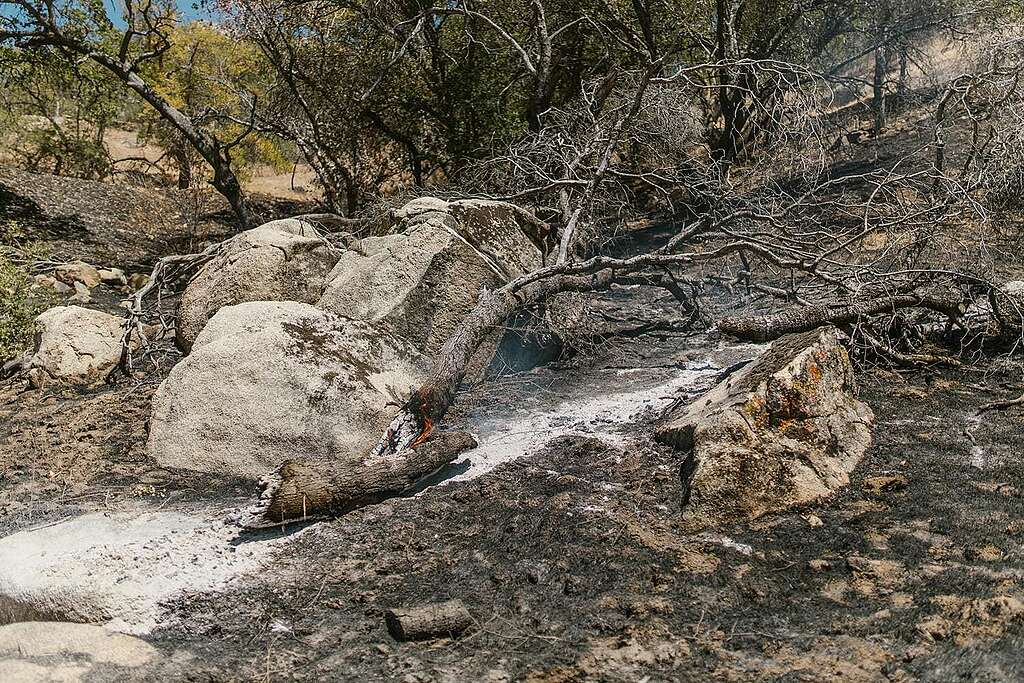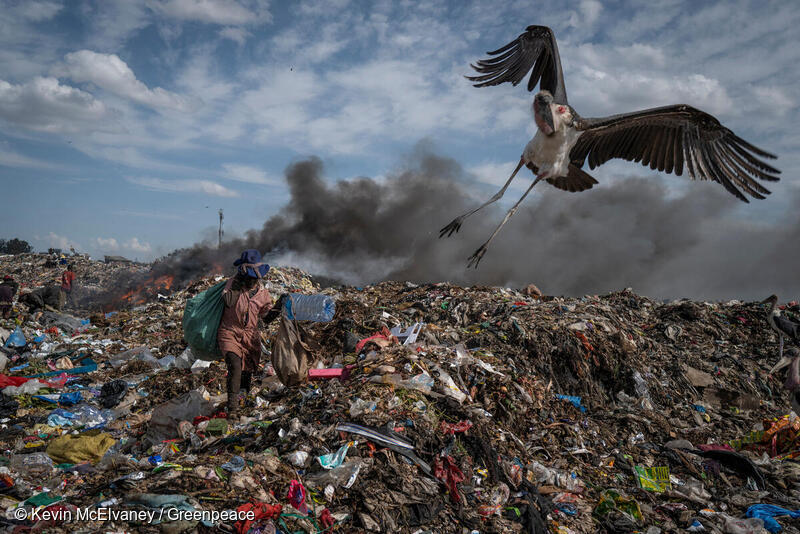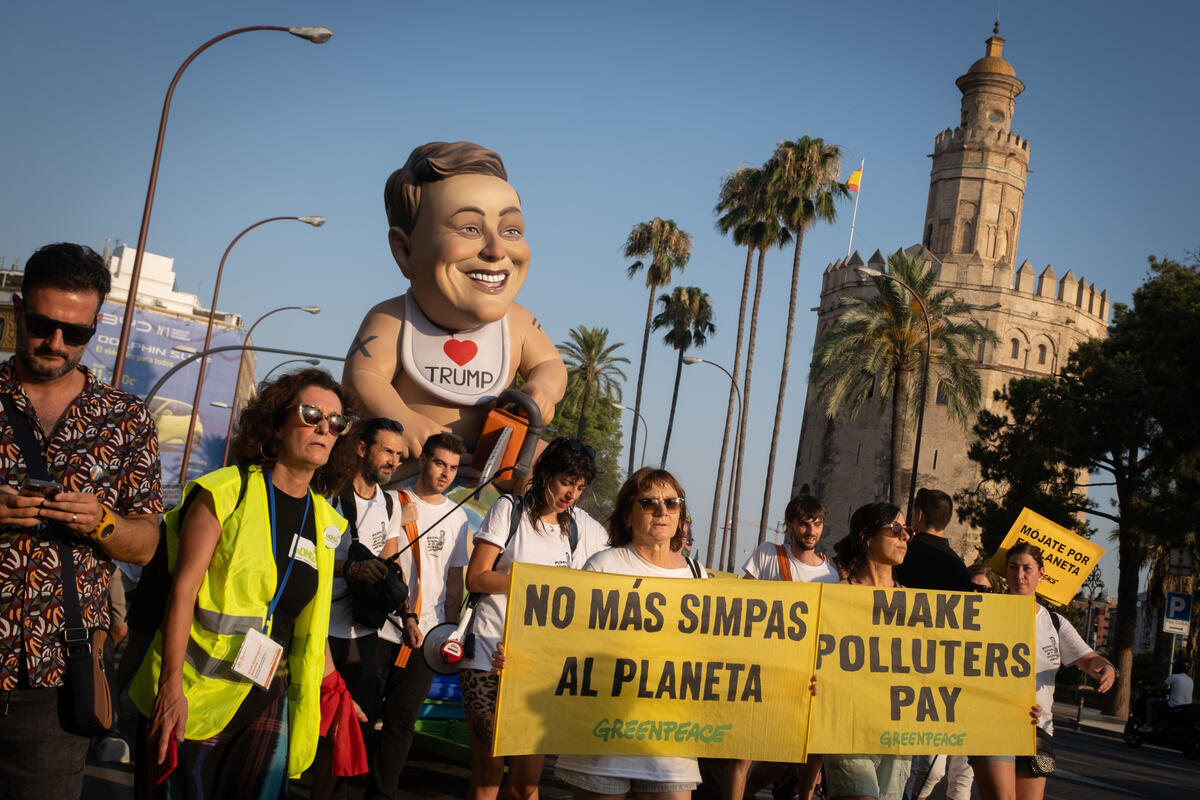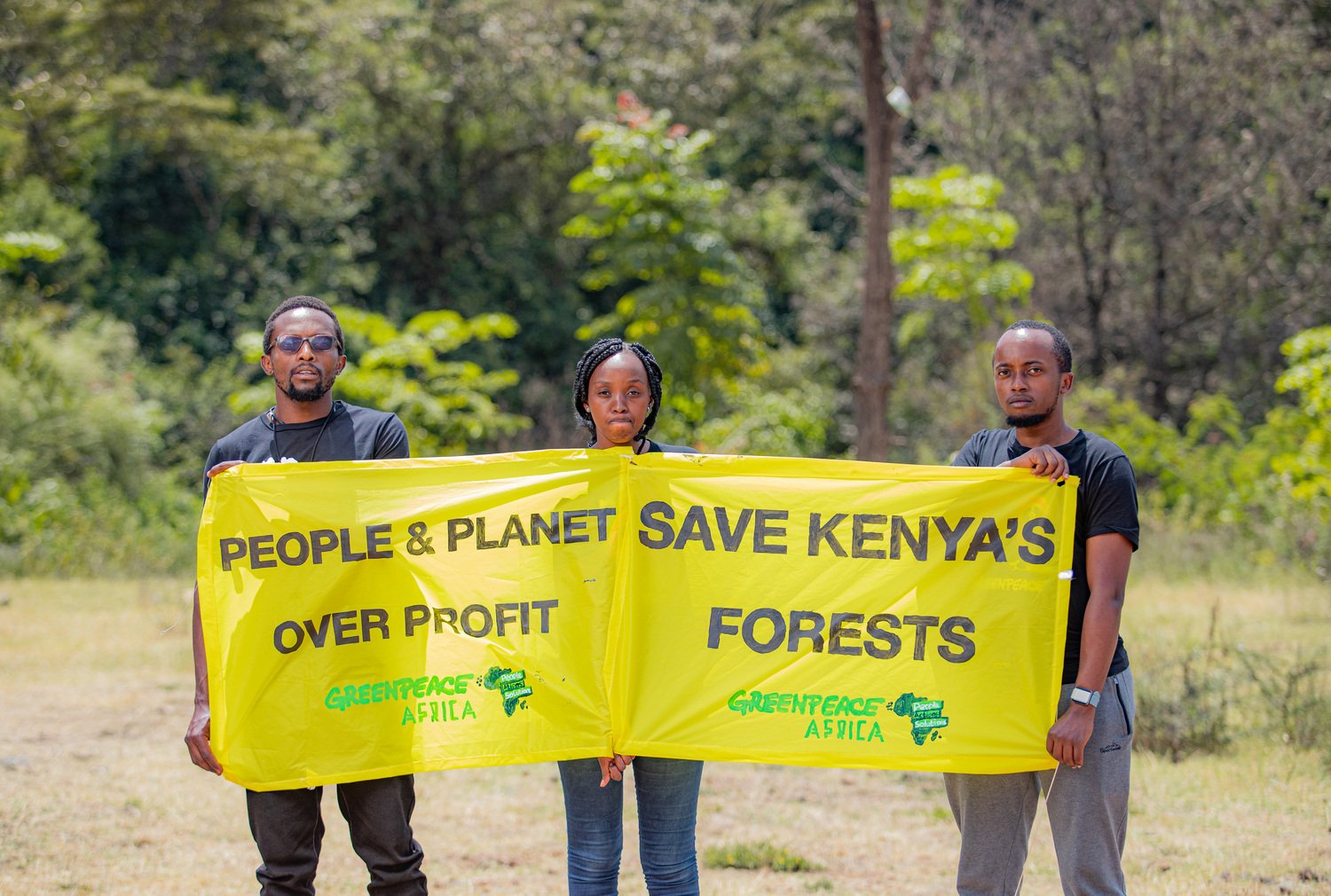The containment of the Isiolo wildfires comes as a relief, but it serves as a stark reminder of the devastating effects of climate change on marginalized communities. As extreme weather events grow more frequent and severe, the urgency for immediate, concrete climate action cannot be overstated. Greenpeace Africa stands in solidarity with the residents of Isiolo, urging a comprehensive response to this crisis and long-term investments in climate resilience and adaptation.

These wildfires have devastated ecosystems, destroyed livelihoods, and caused widespread environmental damage. Communities are now grappling with the loss of grazing lands, wildlife habitats, and critical infrastructure. Unfortunately, the government’s slow and insufficient response has left affected residents without the support they desperately need.
This week, after a prolonged dry spell, Nairobi was hit with heavy rains that triggered severe flooding in some areas. These events reveal a troubling pattern: extreme weather is no longer just an isolated crisis but a long-term challenge to our ability to plan and adapt. Wildfires, floods, and droughts are symptoms of a much larger problem—a rapidly changing climate that frontline communities are bearing the brunt of.
The solution lies in proactive, long-term climate resilience planning. Treating these weather extremes as isolated events only delays action. The signs are clear: our climate is changing, and we must act urgently to adapt before it’s too late.
In Isiolo, as in many parts of Kenya, communities are already experiencing the consequences of climate change. Yet, the government continues to fall short in preventing and addressing such disasters. This is not an isolated incident—it is part of an escalating trend of extreme weather that threatens to become the new normal. The time for delay is over. We need decisive government action to strengthen early warning systems, invest in proactive climate adaptation, and empower communities to take the lead in disaster management.
However, African governments cannot address these challenges alone. There is an urgent need for global solidarity. World leaders must act decisively to tackle the climate crisis. The world is at a tipping point, and climate change is no longer a distant threat—it is a present-day reality, causing widespread destruction. Governments must take immediate, concrete steps to halt the expansion of fossil fuels and put in place systems that enable communities to adapt to a rapidly changing climate.
The containment of the Isiolo wildfires is not the end of the story—it is a wake-up call to the world. Without urgent action, the future will be defined by ever-increasing climate disasters. This is no time for empty promises. World leaders must act now to protect people and the planet from a catastrophic future.
Amos Wemanya,
Responsive Campaigns Lead, Greenpeace Africa



